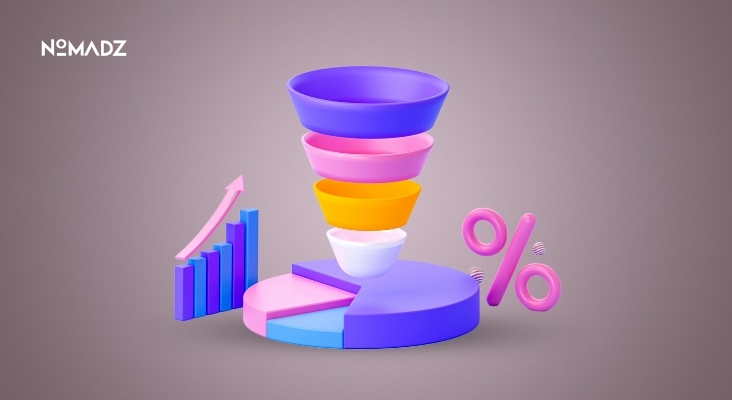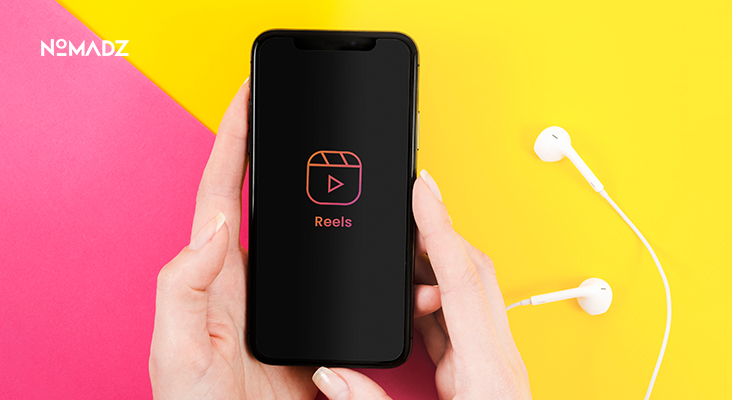Funnel Marketing: Debunking All the Myths Around
In the modern era of digital existence, funnel marketing has become an essential method for companies to turn prospects into habitual buyers. Misconceptions about marketing funnels may limit their total potential. But what’s a funnel, really? This blog debunks popular myths about funnel marketing and provides a straightforward explanation of how it works.
Businesses that understand the funnel better can engage with more clients and increase revenue.
Understanding Funnel Marketing
Funnel marketing is a systematic technique that takes potential customers through several stages, from first awareness to final purchase. Visualising the funnel process explains step by step how leads flow until the last stage of making a purchase, and only those who are very interested do.
Marketing funnels are effective tools for businesses. These tools optimise understanding of clients’ moving-through-stages process and propel potential buyers from the initial invitation to making a purchase.
Also Read: How to Create a Newsletter in 2025: A Beginner’s Guide
What is a Marketing Funnel?
A marketing funnel describes a journey that customers experience, from their acquaintance with a product to the receipt of that product. Marketing funnels are visual paths depicted to explain various stages that customers experience in order to become aware, interested, consider, have intent, evaluate, and finally make a purchase.
An advertising funnel, in particular, focuses on guiding potential customers through these stages with targeted ads. By discovering these stages, marketers can develop tailor-made tactics to meet the specific customer needs at every stage.
Marketing Funnel Stages: Goals, Actions, and Metrics
Comprehension of what characterises each stage in the marketing funnel makes it easy for effective marketing strategies to be developed. Let’s break it down:
| Stage | Customer Behavior | Marketing Goals | Key Metrics |
| Awareness | Discover your brand through ads, social media, or SEO | Increase brand visibility | Website traffic, impressions |
| Interest | Engages with content, follows on social media | Educate and inform about offerings | Click-through rates, time on site |
| Consideration | Compared with competitors, reads reviews | Highlight unique selling propositions | Engagement rates, lead generation |
| Intent | Adds products to cart, signs up for trials | Encourage decision-making | Conversion rates, cart additions |
| Evaluation | Seeks promotions, contacts support | Address objections, provide incentives | Response time, discount usage |
| Purchase | Completes the transaction | Finalise the sale, ensure customer satisfaction | Sales numbers, customer feedback |
Debunking Common Funnel Marketing Myths
Let’s address some prevalent myths for this marketing:
1. Myth 1: The Funnel is Linear
The funnel works on a straightforward step-by-step flow. The customers could cycle between stages, skip or repeat stages, or even skip entire steps. Being able to comprehend such non-linear action is significant in making this marketing effective. Today’s digital world has many customer touchpoints and channels.
This makes business interactions with customers more complex and scattered. Because of this, it’s harder to keep communication clear and effective. That’s why businesses need well-organised strategies to manage these interactions.
Also Read: How To Get Started With Email Marketing?
2. Myth 2: More Traffic Equals More Conversions
Greater traffic to the top of the marketing funnel does not necessarily mean greater sales statistics. Personalising marketing towards relevant leads gives a greater percentage for conversion into customers. Focusing on quality leads and nurturing them as they pass through the funnel stages results in a better experience than funnel site traffic increases.
3. Myth 3: One Funnel Fits All
The same funnel method that is used has very little effect on other products or target groups. To drive greater audience engagement, marketing efforts must be tailored to the specific needs and traits of various customer segments. Tailoring your marketing approach ensures that each customer segment receives targeted messaging and promotions.
This personalised strategy helps meet their specific needs more effectively. It also boosts the chances of conversion, especially when applied through a purchasing funnel.
Understanding Full-Funnel in Marketing and the Role of CRM
Full-funnel marketing targets all customer journey stages, maintaining cohesive messaging and interaction. This process enables continuous customer usage as the customer fulfils the sales cycle, a step that increases visibility and establishes lasting customer trust and loyalty. Customer Relationship Management (CRM) systems play an important role in marketing.
They track customer interactions and manage valuable data. This helps deliver personalised communication, improving the success of the purchasing funnel strategy.
Implementing an Effective Funnel Marketing Strategy
To develop a successful funnel marketing strategy:
- Identify Target Audience: Collect your audience’s insights and determine the most influential factors that lead them to make a choice.
- Create Relevant Content: Create content pieces that resonate with the hopes and behaviours of the customer along the funnel process.
- Utilise Multiple Channels: Address your audience through a variety of channels, including emails, social media sites and SEO strategies.
- Analyse and Optimise: Watch your funnel and change it when needed in order to increase engagement and conversions.
Conclusion: Getting More Conversions by Strategic Funnel Marketing
Funnel marketing is a valuable asset in today’s business arsenal. Companies may improve their strategy by knowing the dynamics of the marketing funnel stages. Clearing common myths also helps push prospects through the customer funnel. Adopting an end-to-end approach and combining it with CRM systems is essential.
The ongoing enhancement of these strategies will lead to better conversion rates and longer-term business growth.
Also Read: Best Facebook Marketing: Tips to Grow Your Social Media in 2025
FAQs
Q. What is a funnel in marketing?
A. With this tool, potential customers’ move from awareness to purchase decision can be visually illustrated.
Q. Why is it important for marketing to reach all phases of the customer experience with consistent content and engagement?
A. Marketing at such a level reaches all phases of the customer experience, ensuring that the customer is exposed to consistent content and involvement.
Q. What are the five stages of a customer’s decision-making process?
A. Becoming aware, expressing interest, considering opportunities, establishing an intention, and making the purchase.
Q. What is the funnel in CRM?
A. By monitoring and regulating customer engagement at every level, CRM funnels help businesses stay connected with their audience. This allows them to maximise lead nurturing and move prospects toward conversion.
Q. What is a purchase funnel?
A. A purchase funnel shows the consumer funnel process from recognising a need to making a purchase, helping businesses adjust their marketing strategy accordingly.









Leave feedback about this